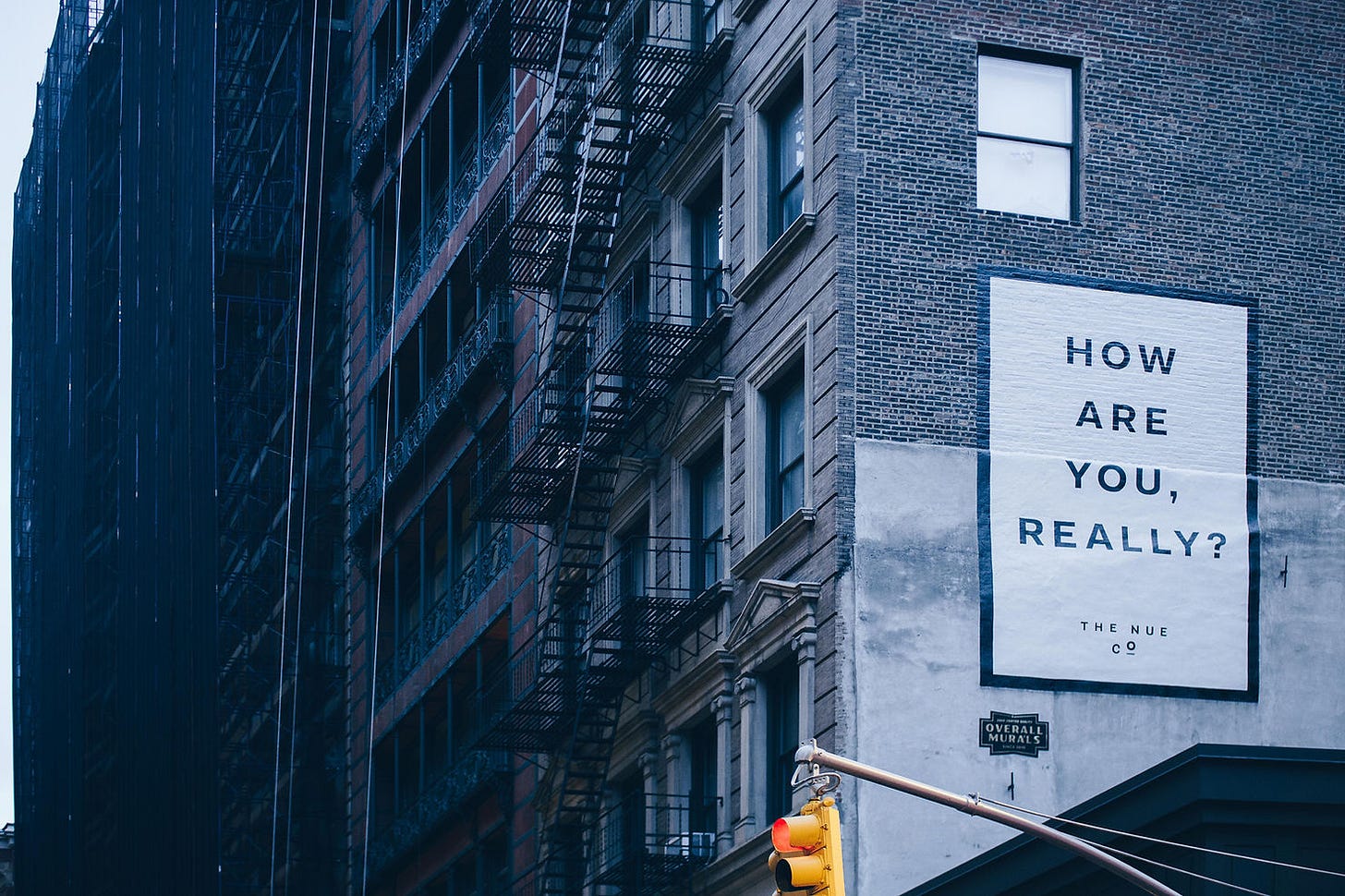How are you (really)?
Three little words that are so common place in our conversation. Three little words that we offhandedly ask and respond to at the start of almost every conversation. Just three simple little words.
"How are you?" ... "I'm Good"
When everything is kind-of okay in our worlds "good" is an easy response that just opens up further conversation depending on where we are, who we're talking to and what's on our minds. We're not usually listening for the answer or wanting to unpack complex emotions. Our expectation is that we are all "good."
But what if you're really not good? What if all is not well? What if your world has been turned so upside down and backwards that the simplest of common courtesies throws you into flight or freeze mode?
Of late I have been finding this question really difficult to answer. "I'm good" feels so inadequate, so untruthful, so fake and flaky. But to go deeper - is anyone really ready for that in those passing social moments? My general response now has diluted a bit to "I'm okay/alright" and depending on the person I might expand or I might not.
Powerful Discomfort
When I sat in the specialists waiting room for the first time, I remember hoping & hoping he wouldn't start with "How are you?" Asking someone how they are when they are about to receive a life changing verdict is not helpful. And thankfully he didn't. He just dove in with a statement of appreciating and seeing my situation in it's fullness and intensity "this must be really hard for you" or something like that. It felt so validating that I didn't have to mumble and stumble over awkward platitudes; I could grasp the opportunity he presented to express how I was really feeling. And that meant so much.
I have also appreciated friends and family who are willing to step into that sacred space of pain and purity and purpose with me. It's not comfortable, but it's powerful. Being willing to ask "How are you really?" and being prepared to hear and feel and lean into the complexities and ambiguity and wrestling that is happening in my heart brings a deep and enduring connection. When we can be there for each other in that capacity, that is a pinnacle of relationship that is often by-passed for the easier, more comfortable paths. But those mountain top experiences, the roads less traveled, are often the more rewarding.
Inappropriate Occasions
This weekend I'm heading to my brother-in-laws wedding - one we've been anticipating and looking forward to for so long (yay!). And then on Tuesday I have my next specialist appointment to receive my results from the genetic tests and CT scan. How am I? I'm apprehensive; I'm worried; my sleep is broken by regular nightmares; I find myself crying on the kitchen floor an awful lot; I'm imaging my own funeral in my head AND I keep doing life, I am grateful for every sweet moment I have and am sowing as much love and care and peace into my family as I can squeeze into each day.
Do I want to go into all that at a wedding? ... No, not really. It's probably quite inappropriate right? But there lies my dilemma - how do I respond to the multitude of well meaning but so hard to answer "How are you's?" by family, relatives and friends over the course of this special occasion? I trip over "I'm good" so what else can I possible say that's going to be okay?
I've been playing this one out in my head and heart over the last week, mentally trying to prepare. And then epiphany! A solution from my Nan (who died last year of cancer). She always had the sweetest way of responding to the "how are you?"question: she would reply "all the better for seeing you dear." Thanks Nan!
"All the better for seeing you" offers an artful, graceful deflection that celebrates the gift of time that is about to be shared between us, acknowledges my appreciation of them in my life and presents an opportunity to focus on their journey rather than dive into my own. Let's see how it goes.
Courage, Love and Legacy
When you are diagnosed with cancer, simple things that are considered so normal and by-the-by can suddenly become awkward and even challenging hurdles to navigate. I'd never even really considered the How are you/Good conversation opener until now. And suddenly there it is, at the start of every interaction and multiple times a day I find myself at a complete loss. For those not wrestling with life and death realities, it probably seems so insignificant and contrary, but, right now, for me, it's not. And that's okay.
There's no book that can tell us exactly what things will trigger us on this journey; there's only our personal reactions and responses and our willingness to feel them out, unpack them and be prepared to have the grace for ourselves and for others as we navigate this new realm.
Today I'm thankful for my Nan's legacy - her gentle words, which I've heard all my life, and now provide me with the love and courage I know need in the days ahead.
Feel free to share what "normal" things have you suddenly found harder to handle in your life post-diagnosis and how you might have navigated those challenges.




